"While dictators rage and statesmen talk, all Europe dances — to The Lambeth Walk."
Saturday, 21 March 2009
A Different Perspective on Obama's Iran Address
Further to my brief comments on Obama's Newroz message to Iran, in which based on Obama's record to date and stated beliefs I took his statement at face value, regular contributor Derius sent me a link taking a slightly different perspective.
Here is an excerpt:
There are those who are certain that the message sent to Iran by President Obama can only be a strategic and moral error, that will confirm the rulers of Iran in their arrogance and hatred and folly. But there is another conceivable interpretation that is not quite so bleak. The signal to Iran, the obvious attempt to flatter Iranians about their "great civilization" -- mention of art, literature, and "innovation" -- is done not in a message on a Muslim holiday, but on Nowruz, a pre-Islamic holiday that the Islamic Republic of Iran has been unable to stamp out, though in the past it has tried to limit the "enthusiasm" of the celebrants.
In other words, the message from Obama is crafted to appeal to Iranian pride, but pride about what? Not pride in Islam, but pride in art (which art? The mosques only?), in literature (and the careful mention of Sa'adi was meant to appeal to Iranian pride), when everyone knows that Firdowsi, Sa'adi, Hafiz, and Omar Khayyam are all part of a constellation of Persian poets identified not so much with Islam, as with being beyond, or indifferent to, or in some cases hostile, if not to Islam, then at least to the cultural and linguistic imperialism of the Arabs.
Interesting. The premise seems to be that the State Department have a trick or two up their sleeve - using references to Iran's pre-Islamic culture and heritage to instill national pride that can go beyond the Islamists.
If it's true, it is a nice idea, but I'm not sure it can be effective in practice. As much as I would love to see the Iranians attempt to throw off the Islamist yoke and vote for a more moderate candidate in their next general election, let's not forget where much of the country's power rests; with the supreme leader, the Ayatollah Ali Khamenei. On his wikipedia page, under the heading 'political attitude', you will find the following quote:
"In his speeches Khamenei consistently dwells on familiar themes of the 1979 revolution: the importance of justice, independence, self-sufficiency, and Islam; the need for resolute opposition to Israel and United States.[16] Dealing with the presidents who have served during his reign, Khamenei has successfully scuttled President Rafansjani's attempts to find a modus vivendi with the United States, President Khatami's aspirations for a more democratic Islamic state, and President Ahmadinejad's desire for confrontation.[16]"
Despite the potential hope in the latter statement, which suggests the supreme leader does not necessarily seek war with other states, he's hardly a moderate. Ahmedinejad has also used the words of the previous supreme leader to defend his assertion that 'Israel should be wiped off the map', claiming that the beliefs of and words uttered by so holy a man are non-negotiable.
However, the quote leads me on to another theme found in the Jihad Watch article; the idea that in Iran, Islam, or at least its worst and most oppressive aspects, constitute foreign influence or the last vestiges of Arab oppression.
Although if you talk to ordinary Iranians you might find a degree sympathy for these views, it seems to me that most of the Iranian activities which the US disapproves of or sees as hostile are attempts to become a regional power in its own right, be independent and answerable to no other power, and spread Shia Islam.
Some of these activities include its nuclear programme, its hostility to Israel, funding of organisations like Hezbollah and Hamas, plus its activities in Iraq and Afghanistan against coalition and NATO troops. Clearly, Iran wishes to assert itself and the radical Islamic ideas which gave birth to it in its present form. It wishes to become a regional power, and in doing so usurp mainly Israel, but also more powerful Sunni states.
It could also be argued that it wants its influence to spread into 'Greater Iran', the lands and peoples Persian in culture, language or influence like Afghanistan and Tajikistan.
All of this, is of course, pure conjecture; but I find it difficult to imagine how Obama or the US administration will persuade the Iranian people to oust their less moderate leaders when the least moderate of all never even comes up for election.
More than that, will the people of Iran see these overtures as a genuine attempt to integrate them into the community of nations, or more of an attempt to subvert and neutralise an Iran growing in influence, status and power?
By all accounts, Iran's leaders have not reacted to Obama's message well; the Supreme Leader said that 'he spouts the mantra of change, but does not change'. He then reeled off a long list of grievances which Iran has against the US.
However, he did say that if America changed some of its policies, including its unwavering support of Israel and sanctions against Iran as a supporter of terrorism, then the Iranian Government would 'leave the door open' for talks.
Here is an excerpt:
There are those who are certain that the message sent to Iran by President Obama can only be a strategic and moral error, that will confirm the rulers of Iran in their arrogance and hatred and folly. But there is another conceivable interpretation that is not quite so bleak. The signal to Iran, the obvious attempt to flatter Iranians about their "great civilization" -- mention of art, literature, and "innovation" -- is done not in a message on a Muslim holiday, but on Nowruz, a pre-Islamic holiday that the Islamic Republic of Iran has been unable to stamp out, though in the past it has tried to limit the "enthusiasm" of the celebrants.
In other words, the message from Obama is crafted to appeal to Iranian pride, but pride about what? Not pride in Islam, but pride in art (which art? The mosques only?), in literature (and the careful mention of Sa'adi was meant to appeal to Iranian pride), when everyone knows that Firdowsi, Sa'adi, Hafiz, and Omar Khayyam are all part of a constellation of Persian poets identified not so much with Islam, as with being beyond, or indifferent to, or in some cases hostile, if not to Islam, then at least to the cultural and linguistic imperialism of the Arabs.
Interesting. The premise seems to be that the State Department have a trick or two up their sleeve - using references to Iran's pre-Islamic culture and heritage to instill national pride that can go beyond the Islamists.
If it's true, it is a nice idea, but I'm not sure it can be effective in practice. As much as I would love to see the Iranians attempt to throw off the Islamist yoke and vote for a more moderate candidate in their next general election, let's not forget where much of the country's power rests; with the supreme leader, the Ayatollah Ali Khamenei. On his wikipedia page, under the heading 'political attitude', you will find the following quote:
"In his speeches Khamenei consistently dwells on familiar themes of the 1979 revolution: the importance of justice, independence, self-sufficiency, and Islam; the need for resolute opposition to Israel and United States.[16] Dealing with the presidents who have served during his reign, Khamenei has successfully scuttled President Rafansjani's attempts to find a modus vivendi with the United States, President Khatami's aspirations for a more democratic Islamic state, and President Ahmadinejad's desire for confrontation.[16]"
Despite the potential hope in the latter statement, which suggests the supreme leader does not necessarily seek war with other states, he's hardly a moderate. Ahmedinejad has also used the words of the previous supreme leader to defend his assertion that 'Israel should be wiped off the map', claiming that the beliefs of and words uttered by so holy a man are non-negotiable.
However, the quote leads me on to another theme found in the Jihad Watch article; the idea that in Iran, Islam, or at least its worst and most oppressive aspects, constitute foreign influence or the last vestiges of Arab oppression.
Although if you talk to ordinary Iranians you might find a degree sympathy for these views, it seems to me that most of the Iranian activities which the US disapproves of or sees as hostile are attempts to become a regional power in its own right, be independent and answerable to no other power, and spread Shia Islam.
Some of these activities include its nuclear programme, its hostility to Israel, funding of organisations like Hezbollah and Hamas, plus its activities in Iraq and Afghanistan against coalition and NATO troops. Clearly, Iran wishes to assert itself and the radical Islamic ideas which gave birth to it in its present form. It wishes to become a regional power, and in doing so usurp mainly Israel, but also more powerful Sunni states.
It could also be argued that it wants its influence to spread into 'Greater Iran', the lands and peoples Persian in culture, language or influence like Afghanistan and Tajikistan.
All of this, is of course, pure conjecture; but I find it difficult to imagine how Obama or the US administration will persuade the Iranian people to oust their less moderate leaders when the least moderate of all never even comes up for election.
More than that, will the people of Iran see these overtures as a genuine attempt to integrate them into the community of nations, or more of an attempt to subvert and neutralise an Iran growing in influence, status and power?
By all accounts, Iran's leaders have not reacted to Obama's message well; the Supreme Leader said that 'he spouts the mantra of change, but does not change'. He then reeled off a long list of grievances which Iran has against the US.
However, he did say that if America changed some of its policies, including its unwavering support of Israel and sanctions against Iran as a supporter of terrorism, then the Iranian Government would 'leave the door open' for talks.
Subscribe to:
Post Comments (Atom)
.jpg)





















































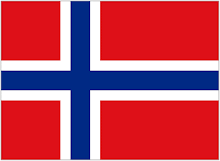
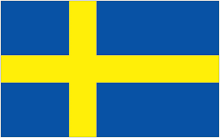






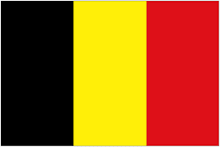

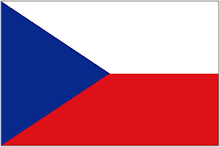











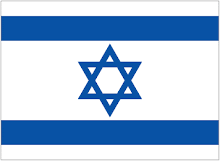




No comments:
Post a Comment